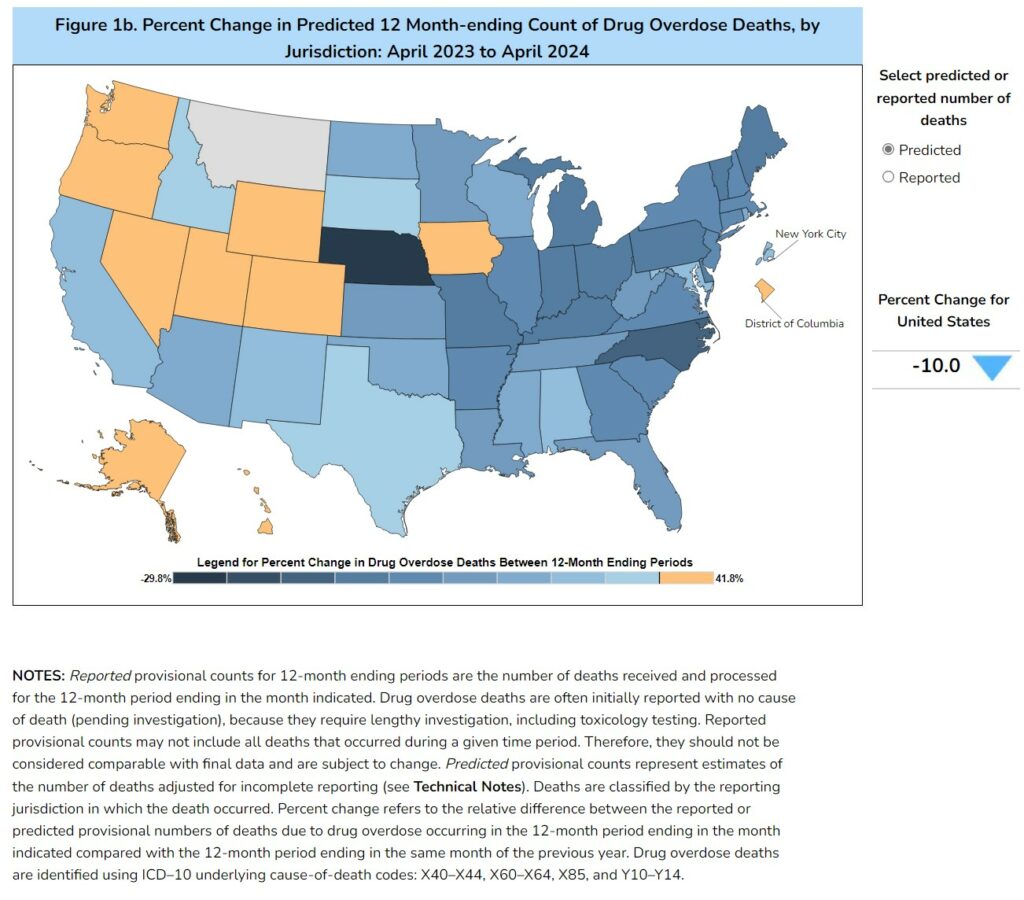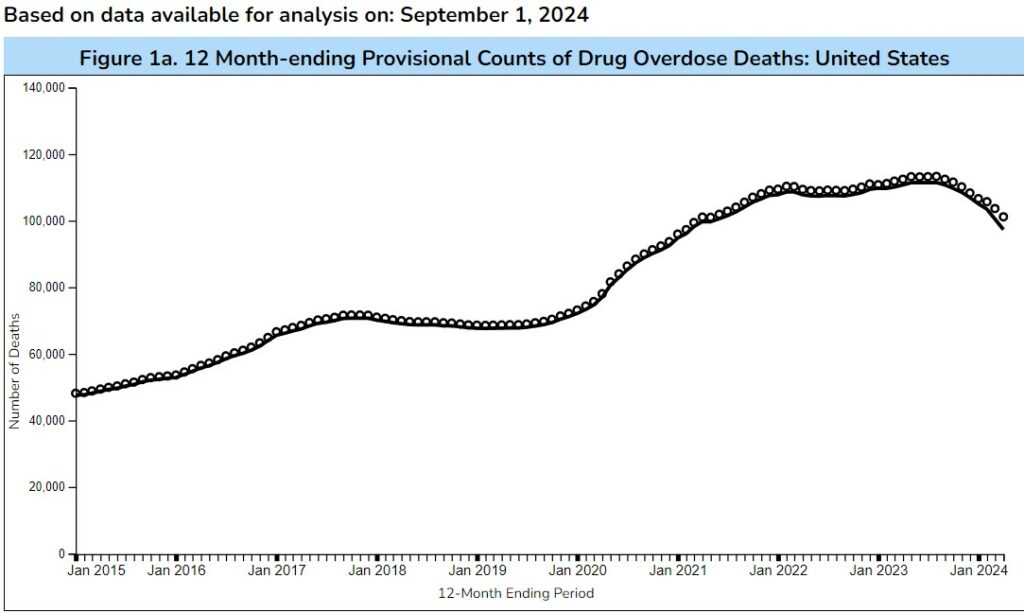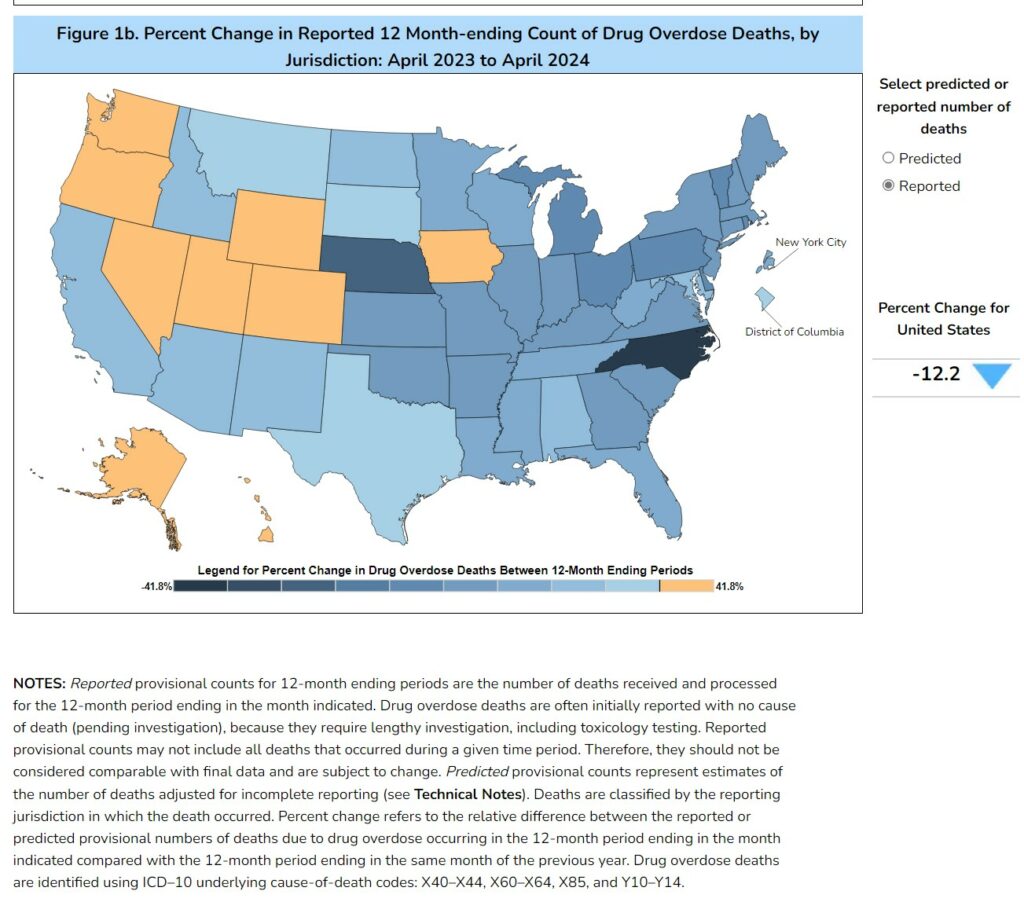Reduction in Drug Deaths is 2024 Before I start on this. Credit to Digsby at HullaBaLoo and will be using parts of the same NPR report also. The CDC graphs define the decrease in drug usage nationally and also state by state. Some good news for once on drug addiction. Products – Vital Statistics Rapid Release – Provisional Drug Overdose Data, CDC.gov The three charts I am showing reflect totals and do not reflect a state-by-state reduction in Overdose deaths. There is a table reflecting a state-by-state prediction and actual reduction which can be found here: Data Table for Figure 1b: Percent Change in 12 Month-ending Count of Drug Overdose Deaths, by Jurisdiction. It is under the last chart on the site. Clicking the down arrow will give you
Topics:
Angry Bear considers the following as important: Healthcare, history
This could be interesting, too:
Ken Melvin writes A Developed Taste
Bill Haskell writes Families Struggle Paying for Child Care While Working
Joel Eissenberg writes RFK Jr. blames the victims
NewDealdemocrat writes Constitutional Interregnum
Reduction in Drug Deaths is 2024
Before I start on this. Credit to Digsby at HullaBaLoo and will be using parts of the same NPR report also. The CDC graphs define the decrease in drug usage nationally and also state by state. Some good news for once on drug addiction.
Products – Vital Statistics Rapid Release – Provisional Drug Overdose Data, CDC.gov
The three charts I am showing reflect totals and do not reflect a state-by-state reduction in Overdose deaths. There is a table reflecting a state-by-state prediction and actual reduction which can be found here: Data Table for Figure 1b: Percent Change in 12 Month-ending Count of Drug Overdose Deaths, by Jurisdiction. It is under the last chart on the site. Clicking the down arrow will give you a state-by-state reduction.
The next chart is an overall provisional count or the nation’s Overdose Deaths. The graph reflects total numbers of deaths by year. Substantial reduction in 2024.
Figure 1b shows color coded predicted percent change in 12 months of deaths by state. The result was 10% less than the actual prediction ending April 2024.

The other Figure 1b below shows the reported deaths by state. The percent change is greater than the prediction.
NPR Reports:
For the first time in decades, public health data shows a sudden and hopeful drop in drug overdose deaths across the U.S.
As the head of the National Institute On Drug Abuse [NIDA], Dr. Nora Volkow states about this news.
“This is exciting. This looks real. This looks very, very real.”
The National Institute on Drug Abuse is the federal laboratory charged with studying addiction.
National surveys compiled by the Centers for Disease Control and Prevention also show an unprecedented decline in drug deaths of roughly 10.6 percent. That’s a huge reversal from recent years when fatal overdoses regularly increased by double-digit percentages.
Some researchers believe the data will show an even larger decline in drug deaths when federal surveys are updated to reflect improvements being seen at the state level, especially in the eastern U.S.
“In the states that have the most rapid data collection systems, we’re seeing declines of twenty percent, thirty percent,” said Dr. Nabarun Dasgupta, an expert on street drugs at the University of North Carolina.
Some researchers believe the data will show an even larger decline in drug deaths when federal surveys are updated to reflect improvements being seen at the state level, especially in the eastern U.S.
To verify the state-by-state reduction, you can look on the “Data Table for Figure 1b: Percent Change in 12 Month-ending Count of Drug Overdose Deaths, by Jurisdiction.” It is under the last chart on the site. Clicking the down arrow will give you a state-by-state reduction.
According to Dasgupta’s analysis, which has sparked discussion among addiction and drug policy experts, the drop in state-level mortality numbers corresponds with similar steep declines in emergency room visits linked to overdoses.
Dasgupta was one of the first researchers to detect the trend. He believes the national decline in street drug deaths is now at least 15 percent and could mean as many as 20,000 fewer fatalities per year.
“Today, I have so much hope”
After years of wrenching drug deaths that seemed all but unstoppable, some researchers, front-line addiction workers, members of law enforcement, and people using street drugs voiced caution about the apparent trend.
Roughly 100,000 deaths are still occurring per year. Street drug cocktails including fentanyl, methamphetamines, xylazine and other synthetic chemicals are more poisonous than ever.


